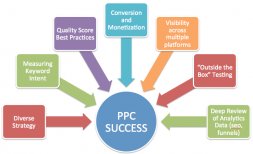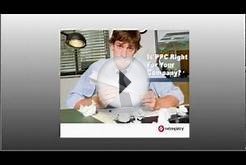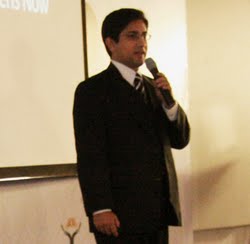With PPC, you're not paying for a promise, and you're not paying to load an ad onto a page. You're paying for an actual result, a click. With PPC, you don't pay if nobody sees your ad, and you don't even pay if someone does see it but doesn't click. You pay only when someone clicks your ad. In the business, people talk about buying clicks because that's just what they (and you) are doing. You're paying a PPC company each time someone clicks a link pointing to your Web site.
Some PPC companies have taken to referring to each click as a lead, but that's just hype. (A lead in sales-talk is someone who has expressed an interest in your product or service. No sales professional would regard the visitor, at this click stage, as having expressed enough interest to have risen to the level of being a sales lead.) Nonetheless, you are paying for a particular action. Someone sees your ad, clicks the ad, and (in general) views your site. Certainly, now and then, people won't arrive at your site — they may click and then cancel before your page fully loads — but generally speaking, a click is the same as a visit.
Why isn't a click the same as a lead? Compare Internet advertising with direct mail. Imagine, for a moment, a direct-mail campaign that is intended to get someone to call your company. You mail a letter, someone opens the letter, reads the letter and, you hope, picks up the phone and calls you. When the person calls, the person becomes a sales lead. Most people who open the letter won't call, though. So you can't call the letter a lead, and you can't call someone opening the letter a lead. Displaying a PPC ad is the equivalent of sending the letter; and a click on the PPC ad is the equivalent of having someone open your letter. It's a step in the right direction, but it's most certainly not a lead.
PPC, 1-2-3
Here's how PPC works:
1. The advertiser joins a search engine's PPC program and "loads" the account with some money — say, $50 (though some companies' PPC budgets are in the hundreds of thousands, even millions, of dollars a month).
2. The advertiser creates a small text ad (in some cases, PPC can include images).
3. The advertiser specifies with which keywords the ad should be associated.
4. The advertiser specifies how much he's willing to pay each time someone clicks on the ad.
5. Later, someone arrives at the search engine, enters one of the keywords or keyword phrases specified, and clicks the Search button.
6. The search engine finds the matching ads and places them on the results page.
7. If the searcher clicks the ad, he is taken to the advertiser's Web site, and the advertiser is charged for the click.
PPC pulls the banner down
By the end of 2000, when the Internet bubble burst, banner advertising had acquired a really bad reputation. Billions of dollars had been spent on banner advertising, and most of it was wasted. Click-through rates — the proportion of ads that are clicked upon — for banner ads were very low, and many advertisers, perhaps most, spent more on the ads than they made on any sales derived from them.
Banner ads had several problems:
- They were expensive. Although CPMs were typically $35-$50, because only one ad impression in 200 resulted in a click, that often translated into a price of $7-$10 per click.
- They had low click-through rates (the ratio of ad impression to actual clicks on the ad), which made them expensive. People were sick of seeing them, so they learned to just ignore them.
- Conversion rates were low. That is, only a small percentage of the people who clicked a banner and arrived at a site actually bought anything.
- They were in the wrong places. Ads were often placed in front of people who simply wouldn't be interested in the offer, which meant people didn't click them much.
The main area of the results page contains organic search results. These are not ads; they are simply pages that Google found in its vast index of the Web (over 8 billion pages at the time of writing), pages that it thinks are the best matches for the search keywords. At the top, and along the side, are sponsored links. These are the PPC ads.











 Shuman Ghosemajumder (born 1974) is a Canadian technologist, entrepreneur, and author. He is the former click fraud czar at Google, the author of works on digital distribution including the Open Music Model, and co-founder of TeachAIDS.
Shuman Ghosemajumder (born 1974) is a Canadian technologist, entrepreneur, and author. He is the former click fraud czar at Google, the author of works on digital distribution including the Open Music Model, and co-founder of TeachAIDS. Seb Bishop is the CEO of GOOP, Gwyneth Paltrow’s lifestyle company. Prior to joining GOOP, Seb was the International CEO of (RED), the organization created by Bono and Bobby Shriver to raise money for The Global Fund to fight HIV/AIDS in Sub Saharan Africa
Seb Bishop is the CEO of GOOP, Gwyneth Paltrow’s lifestyle company. Prior to joining GOOP, Seb was the International CEO of (RED), the organization created by Bono and Bobby Shriver to raise money for The Global Fund to fight HIV/AIDS in Sub Saharan Africa